Scroll down for English version.
Nota del editor: Operation Parenting es un grupo de padres para padres immigrates y otros cuidadores que tienen niños en terapia en una clínica de salud conductual del Child Center of NY. Los terapeutas que provienen de la misma cultura que sus clientes ofrecen las clases en el idioma natal de los clientes. Angela asistió al grupo de habla hispana en la Clínica Flushing.
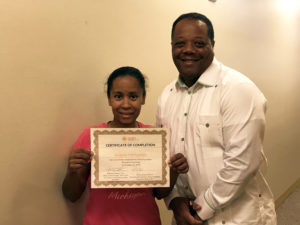
Angela, graduada del programa Operation Parenting, junto al lider de dicho programa, Benito Green. (Angela, with Group Leader Benito Green, graduated from the Operation Parenting program.)
Yo soy Angela, tengo un hijo de 11 años de edad llamado Franklyn. Las clases de Operation Parenting me ayudaaron mucho a ser una mejor madre. Durante el tiempo que duraron las clases del programa Operation Parenting, discutimos muchas temas de sobre tecnicas de resolucion de situaciones problematicas en los miembros de nuestra familia sin tener que gritar o implentar otra medida inapropiada. Este programa me facilito varias estrategias e ideas sobre cómo manejar mejor a mi hijo y entender por qué actúa de la manera que lo hace.
Vine al grupo porque Franklyn, mi hijo, tenía mal temperamento y no respetaba ni a mí, ni a su padre. Frecuentemente, Franklyn no entendia cuando su padre y yo les decimos que no podiamos comprarle lo que el queria. El mostraba un alto nivel de impaciencia, pues sin entender razones, las cosas que el pedia, las queria de inmediato. También, a Franlkyn le asustaban las cosas y los lugares nuevos. Yo quería ayudarlo con esto estas situaciones porque siempre he querido ayudar a mi hijo para que este preparado para enfrentar los desafios del mundo por si mismo, asabiendas que yo no estare con el todo el tiempo para ayudarlo.
En el program Operation Parenting, todos los temas que discutimos todos los viernes ayudaron a todos los miembros de mi famila: a mí, a mi hijo, y tambien a mi esposo; aun cuando yo fui la inica que asistion a las clases. Una de las lecciones mas memorable para mi, fue aquella que tenia como enfoque de “No le drle a tu hijo todo lo que quiere. … Haz que lo merezca o que se lo gane.” En dicha clase discutimos cómo realizar dicha idea sabiendo qué hacer en el momento.
Todo lo aprendido en las clases, trato de llevarlo a la practictica en casa con el proposito de saber si las nuevas técnicas ayudaran de forma efectiva a los miemrosde mi familia. En cada técnica yo utilizo la misma idea básica de programa que es construir una relación con mi hijo, basada en la empatía y la comprensión, en lugar de exigir y cerrarme a las posibilidades de cambios.
Todavía tengo la autoridad, pero ahora tenemos una conversación en lugar de gritar. Como dice Benito Green, el facilitador de grupo: “Si introducimos un cambio, la dinámica de toda la familia cambiara”; como Franklyn está recibiendo terapia aquí, también está aprendiendo a cambiar. El cambio no ocurre de la noche a la mañana, pero esa la perceverancia es otra cosa que aprendí a través de este grupo: nunca te rindas y siempre encuentres la manera de propiciar un cambio o de resolver uno o mas problemas. Como dicen: “El amor siempre encontrará un camino,” y amo mucho a mis hijos.
En ocaciones pensamos que somos demasiado tercos, temerosos o fuertes para buscar ayuda. Ahora sé que el hecho de buscar ayuda me ha convirtido en una madre más fuerte. Ya no peleamos ni gritamos tanto desde que comencé a venir a las clases del Progama Operation Parenting. Los miembros de mi familia nos entendemos major y como familia, somos mas felices.
El grupo acaba de terminar, pero las niñas [las madres del grupo] intercambiamos números de teléfono para formar nuestro propio grupo personal y continuar apoyándonos mutuamente.
Estoy muy feliz de haber sido parte de este grupo. Este era el lugar correcto para que recibir ayuda.
Nota del editor: para una mirada conmovedora, auténtica y divertida de la desconexión y el amor entre los padres de inmigrantes y sus hijos Estadounidenses, vea Season 1, Episodio 2 de Aziz Ansari’s Master of None series, disponible en Netflix.
Angela’s Story
Editor’s Note: Operation Parenting is a parenting group for immigrant parents and other caregivers who have children in therapy at a Child Center behavioral health clinic. The groups are offered in clients’ home languages by therapists who come from the same culture as their clients. Angela attended the Spanish-speaking group at the Flushing Clinic.
I am Angela. I have an 11-year-old son named Franklyn. The Operation Parenting class helped me a lot to become a better mother. We discussed many things on how to solve problems without yelling. It gave me tools and ideas on how to handle my son better and understand why he acts the way he does.
I came to the group because Franklyn had a bad temper and wasn’t respecting me or his father. He doesn’t understand when we tell him we can’t buy him what he wants right away. He also gets scared of new things and places. I wanted to help him with this because I want him to be ready for the world out there without me helping him all the time.
All the topics we discussed every Friday helped me, my son, or my husband. One of them was, “Don’t give your son everything he wants. … Make him deserve or earn.” We discussed how to follow through with that idea so we know what to do in the moment.
Whatever I learn in the class, I try to do it in the house to find out if this new technique will help my son better. Every technique uses the same basic idea: that I want to build a relationship with my son, based on empathy and understanding, instead of demanding and shutting things down. I still have the authority, but now we have a conversation instead of yelling. As Benito, our group leader, says, if we introduce a change, the whole family dynamic will change. And because Franklyn is in therapy here, he is learning how to change, too. The change doesn’t happen overnight, but that is another thing I learned through this group: never give up and always find a way. Like they say, “Love will find a way,” and I love my children a lot.
Sometimes we are too stubborn or afraid or strong to look for help. Now I know that getting help made me a stronger mother. We don’t fight or yell that much since I started coming to the class. We understand each other better. We are happier as a family.
The group just ended, but the girls [moms in the group] all exchanged phone numbers to make our own personal group and continue to support each other.
I am so happy I was a part of this group. This was the right place for us to get help.
Editor’s note: For a moving, authentic, and funny look at both the disconnect and love between immigrant parents and their American children, see Season 1, Episode 2 of Aziz Ansari’s Master of None series, available on Netflix.
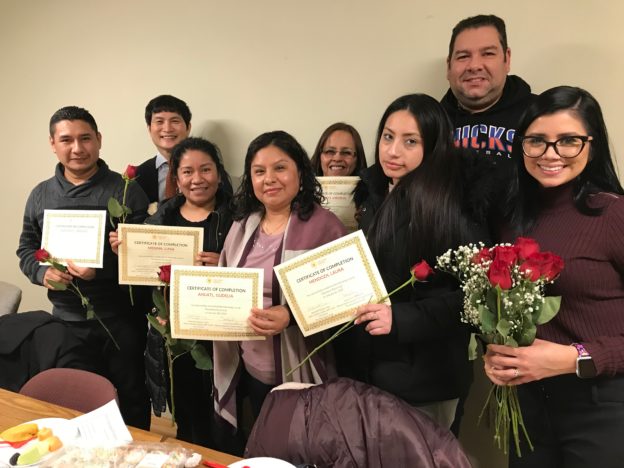

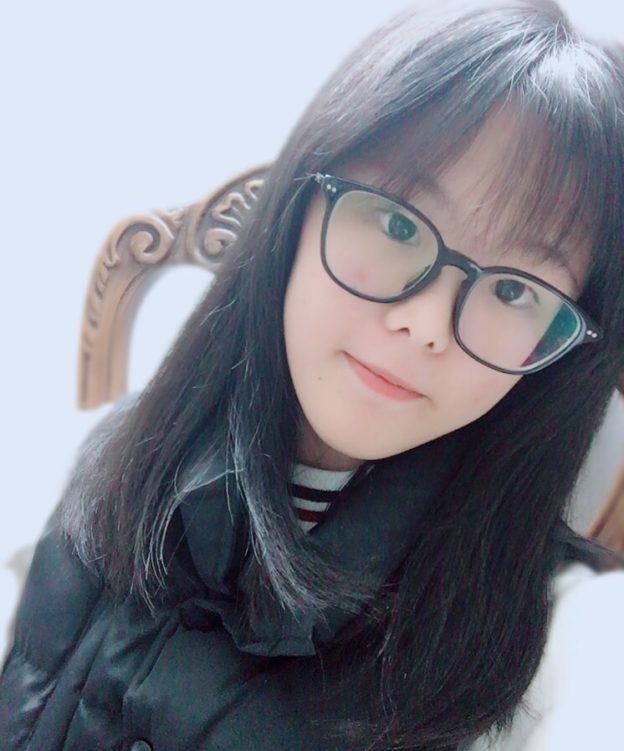
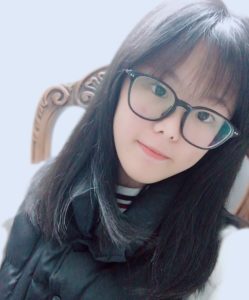 Asian Americans are the fastest growing ethnic group in New York City, and they often face unique and difficult challenges, including an unfamiliar language and culture; poverty; and conflict between immigrant parents and American-raised children. The Child Center of NY’s
Asian Americans are the fastest growing ethnic group in New York City, and they often face unique and difficult challenges, including an unfamiliar language and culture; poverty; and conflict between immigrant parents and American-raised children. The Child Center of NY’s  I came to The Child Center of NY when I was 14. Five years later, I’ve come a long way to be where I am now, talking about my journey and my healing through therapy. Some of it is hard to talk about, and some of it I have a hard time remembering, as a symptom of my post-traumatic stress disorder. It’s difficult to look back to the memories I do have, because I’ve matured a lot and have become a very different person. I can hardly imagine being the girl I was back then.
I came to The Child Center of NY when I was 14. Five years later, I’ve come a long way to be where I am now, talking about my journey and my healing through therapy. Some of it is hard to talk about, and some of it I have a hard time remembering, as a symptom of my post-traumatic stress disorder. It’s difficult to look back to the memories I do have, because I’ve matured a lot and have become a very different person. I can hardly imagine being the girl I was back then.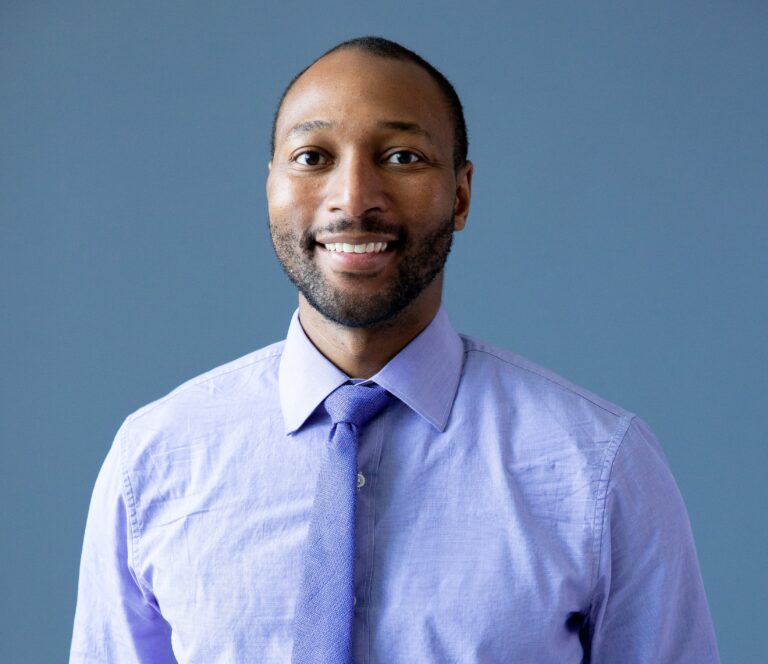
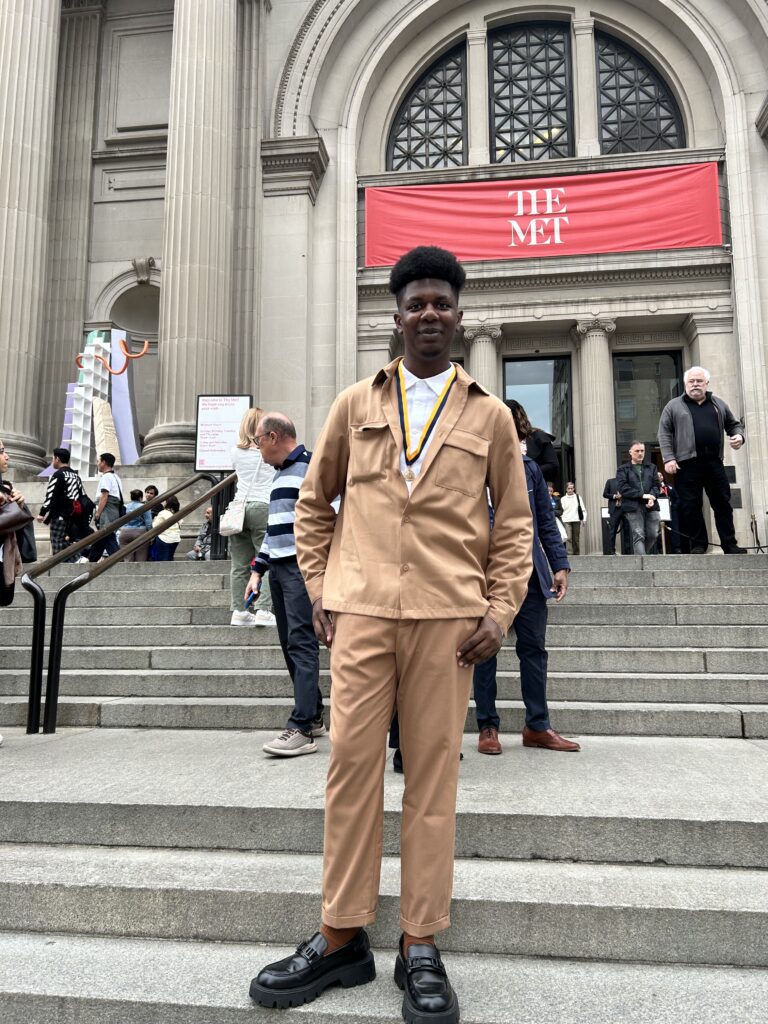

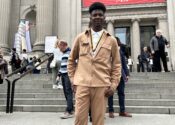


You must be logged in to post a comment.